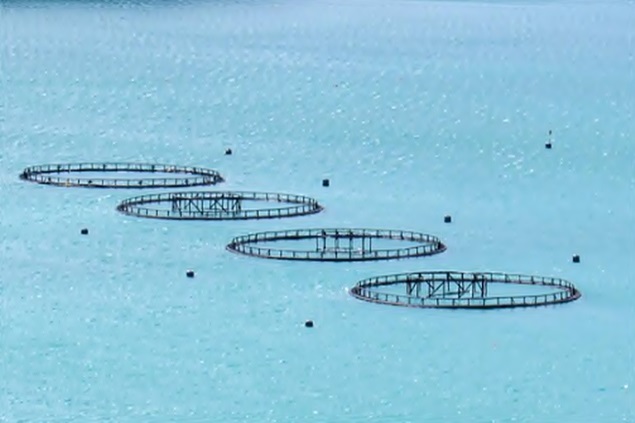1576

The funding made available over a period of seven years is 1 billion euros. Overall, production in the EU is at a standstill. The environmental impact of the sector and the results of EU funding cannot be reliably measured yet.
Although the EU framework for promoting sustainable aquaculture development in member states has improved, the significantly larger funding provided has not yielded concrete results, warns the European Court of Auditors in a report published today. In fact, it seems that aquaculture production in the EU has remained stagnant.
Aquaculture is an important element of the EU's Blue Economy strategy. This sector contributes to food security and is promoted by the European Green Deal as a source of protein with a lower carbon footprint.
With support from the European Maritime and Fisheries Fund (1.2 billion euros allocated for the period 2014-2020) and its successor, the European Maritime, Fisheries, and Aquaculture Fund (1 billion euros allocated for the period 2021-2027), the EU aims to ensure the long-term environmental sustainability of aquaculture and bring economic, social, and employment benefits. However, the results are still awaited and cannot yet be reliably measured.
"In recent years, the EU has mobilized significant resources for the aquaculture sector, which is a major element of its Blue Economy strategy. But, unfortunately, not much has been caught in the net," said Mr. Nikolaos Milionis, the Court member who led this audit.
The value of funding allocated exclusively to aquaculture for the period 2014-2020 was over three times higher than the total amount spent between 2007 and 2013. However, neither the European Commission nor the member states have demonstrated why such a significant increase was needed, and auditors have reasons to believe that the EU has made too much money available.
A large part of this amount has not been used, and it is possible that member states may not be able to spend all available funds by 2023, the deadline after which expenditures are no longer eligible. An unintended consequence is that, in practice, EU countries have funded almost all projects, regardless of their contribution to the EU's aquaculture goal.
A more targeted approach could have achieved better results.
Despite the 1.2 billion euros in funding available for the period 2014-2020, auditors note that overall aquaculture production in the EU is at a standstill. It has even decreased in the case of two of the largest producers (Italy and France).
Socioeconomic indicators are not looking good either. The number of aquaculture enterprises is declining, and the workforce in the sector decreased between 2014 and 2020 from around 40,000 to approximately 35,000 people.
Auditors also highlighted deficiencies in the monitoring system. They could not identify a unique set of indicators to assess the environmental sustainability of the sector, despite this being one of the main objectives of EU policy.
Even more concerning are the current data reported on the execution of EU funds. These data are neither consistent nor reliable. The results are clearly overestimated, some values are counted three times, and the figures fluctuate depending on the selected reporting system.
As a result, auditors could not determine the contribution of EU funds to the social and environmental sustainability of the aquaculture sector or its competitiveness.
The sustainable development of aquaculture (ecologically, economically, and socially) is one of the main objectives of the EU's common fisheries policy.
In 2020, the total aquaculture production in the EU was 1.1 million tons, which is less than 1% of the global total. Spain, France, Greece, and Italy are the main European producers, accounting for about two-thirds of the total production in the EU.
Auditors analyzed the period 2014-2020, as well as the provisions and programs that, at the time of the audit, had already been introduced for the period 2021-2027.
Special Report No. 25/2023, titled "EU Policy on Aquaculture - Stagnant Production and Unclear Results, Despite Increased EU Funding," is available on the Court's website.





